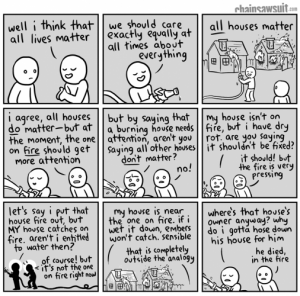Research from McKinsey confirms that diversity leads to better financial results, competitive advantage, employee satisfaction, and other success factors. But most organizations aren’t prepared to deliver on that promise.
All too often, people with differences feel required to assimilate to be accepted. They adopt “covering” behaviors in the face of the dominant culture’s norms, suppressing their own natural actions and responses. Not assimilating can mean being judged as uncooperative or a poor fit, and possibly being forced out of a position or becoming unhappy enough to leave.
Unfortunately, whenever we exclude the possibility of people’s participation as their natural selves, whether through omission or commission, we don’t just lose out on their potential. We also harm our institutions, and undercut the productivity and growth of our entire society.
Programs Can’t Do Enough
Even if progressive corporate leadership or human resources groups work hard to support inclusion, the focus tends to be on workplace activities and accomplishing certain outcomes: getting more women on the board, making reasonable accommodations for employees with physical disabilities, or looking for people of color as “diversity hires.”
 It’s important to see the big picture: Bias is a natural and irrevocable part of being human. It’s part of our automatic response system, like hearing the rustle of leaves and thinking, ‘Tiger! Snake! Danger!!” instead of: “Oooh, maybe it’s a butterfly or a hummingbird or some other lovely thing.”
It’s important to see the big picture: Bias is a natural and irrevocable part of being human. It’s part of our automatic response system, like hearing the rustle of leaves and thinking, ‘Tiger! Snake! Danger!!” instead of: “Oooh, maybe it’s a butterfly or a hummingbird or some other lovely thing.”
We consistently misunderstand and misjudge even the people closest to us. If we make false assumptions about our own loved ones — like overlooking their actual declared preferences and needs or assuming we know what they feel, experience, want, and mean — how much more are we likely to misjudge and overlook the lived experiences of employees we’ve labeled as “different?”
No matter how much progress corporate diversity and inclusion programs may make, when the workday ends, staff members who are not white still return to a dangerous world where they are undervalued, neglected, scorned, and attacked with shocking frequency — because of individual bias and damaging structural and cultural norms.
We Are In This Together
Abuse of power comes from fear. Or a kind of indifference as the late Elie Wiesel described it, an “indifference to the specific realities of the Other.” Whatever we don’t recognize or understand clearly, we fill in with assumptions and suppositions, with stereotypes based on our personal history and what we think “their kind” is like. We create our own narratives explaining why and how the Other might be dangerous to us.
It’s a shame that it has taken so long even for liberal people like me to become aware of the dangers of “living while Black.” I’m ashamed of having been so blind, particularly because I’m quite conscious of the misunderstanding and inappropriate treatment that often accompanies my differences as a woman and a Jew.
In a Talmudic story from the second century, a group of people are traveling together in a small boat. Suddenly, one fellow takes out an axe and starts chopping a hole in the bottom of the boat. The other passengers scream at him, “What are you trying to do, kill us?” The fellow shouts back, “This is none of your business! I’m only making the hole in my part of the boat!”
The story illustrates how easily we feel justified in acting as if we are alone. We become fearful and self-protective, looking out for ourselves, circling the wagons around our own. There are people who believe they’re being fair when they say “all lives matter,” but when some lives have historically been oppressed, then those lives must matter more until things are evened out. How can we say that everyone matters equally when some people have never been treated fully as equals?
Which Side Will We Choose?
People who are not constantly afraid, who don’t have to over-manage themselves to stay safe, do better work and live happier, more productive lives. They produce more for their organizations, contribute more to society, and raise children who go on to do the same.
No matter how successful or above reproach any of us feels, none of us is alone in the fragile boat that is society. The waters are wide and threatening. We won’t get to shore safely if we continue to focus only on our own success. Those of us who are privileged must reach back to bring others to where we are.
How can we do that? The very first step, at work and in the world, is to notice and recognize the pain of the Other. We must rise above our self-protective indifference. As Wiesel said when he accepted the Nobel Peace Prize in 1986, “We must always take sides. Neutrality helps the oppressor, never the victim. Silence encourages the tormentor, never the tormented. Sometimes we must interfere. When human lives are endangered, when human dignity is in jeopardy, national borders and sensitivities become irrelevant. Wherever men or women are persecuted because of their race, religion, or political views, that place must — at that moment — become the center of the universe.”
It’s time to take sides — in the workplace, as well as on the street.
Onward and upward,
LK

